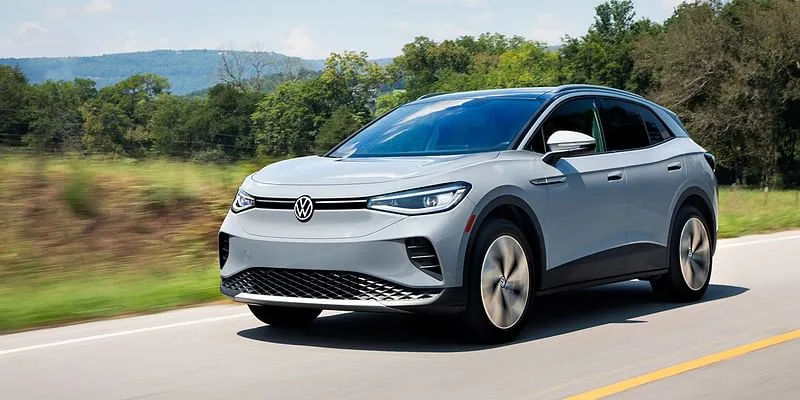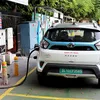Volkswagen to bring its first EV in India next year
By 2030, Volkswagen expects 25-30% of its total sales in India to come from EVs and the rest from internal combustion engine vehicles.
German carmaker plans to bring its first electric vehicle to India next year with the launch of premium electric SUV ID.4 to tap the opportunity in the fast-growing electric mobility space in the country, a senior company official said on Tuesday.
By 2030, Volkswagen expects 25-30% of its total sales in India to come from EVs and the rest from internal combustion engine vehicles.
The company, which has introduced a slew of new variants of its existing conventional engine models, Taigun and Virtus, is looking at a sales growth of 40-45% this year.
Volkswagen Passenger Cars India Brand Director Ashish Gupta said the company is following a two-pronged strategy of premiumisation and electrification to strengthen its presence and enhance its position in India.
"Our strategy is very clear. One is premiumisation and the second has to be naturally in line with global positioning, electrification," he told PTI in an interaction.
Asserting that electrification has to be "done now", he said, "You have to start doing it now to be able to bring a mass electric car, in the timelines that the industry is looking at somewhere in between 2026-27. That's what most of the market is looking at in terms of mass electrification. We are looking at similar timelines."
When asked further about the type of product and launch timelines, Gupta said, "The path to mass electrification in India is first of all going with your global premium products. That's where the ID4 will slot in."
He further said, "We are working towards it and if all goes well definitely next year, I would like to bring this here."
The ID4 will be assembled in India at the company's Aurangabad plant with parts and components imported.
Gupta said electric mobility in India has grown faster than expected and VW believes that by 2030 the level of EV penetration in the passenger vehicles segment in the country could be around 18-30% of total sales on the basis of different studies.

As for VW, he said the company is on the more optimistic side and EVs share to its overall sales in India could be around 25-30% with the rest coming from internal combustion engine vehicles by 2030.
Electrification will come in steps as the ecosystem is currently not ready in India, Gupta said.
"The supply base is not ready. About 50% of the car cost of an electric car is the battery and unless mass localisation of battery manufacturing happens in India, none of the OEMs, not only us, will be able to do mass electrification."
On the overall sales growth prospects for 2023, he said, "The first quarter has been good for us. We have grown almost 15% compared to quarter one of last year. This year our plan is to grow around 40 to 45% compared to last year."
In 2022, VW sold around 41,000 units in the domestic market and in the first quarter of 2023 it sold nearly 12,000 units, he added.
Gupta said the company will focus on premiumisation and network expansion, along with the addition of new variants to existing models to further propel its growth.
"We are expanding into new territories because that's where the growth is coming in...With the new variants we are now making technology even more accessible. We are bringing in more price points in our range that will definitely add volumes...," he said.
Gupta said the semiconductor shortage issue, due to which VW had suffered production loss of around 18,000 last year, has improved although it has not fully been resolved.
Edited by Megha Reddy








